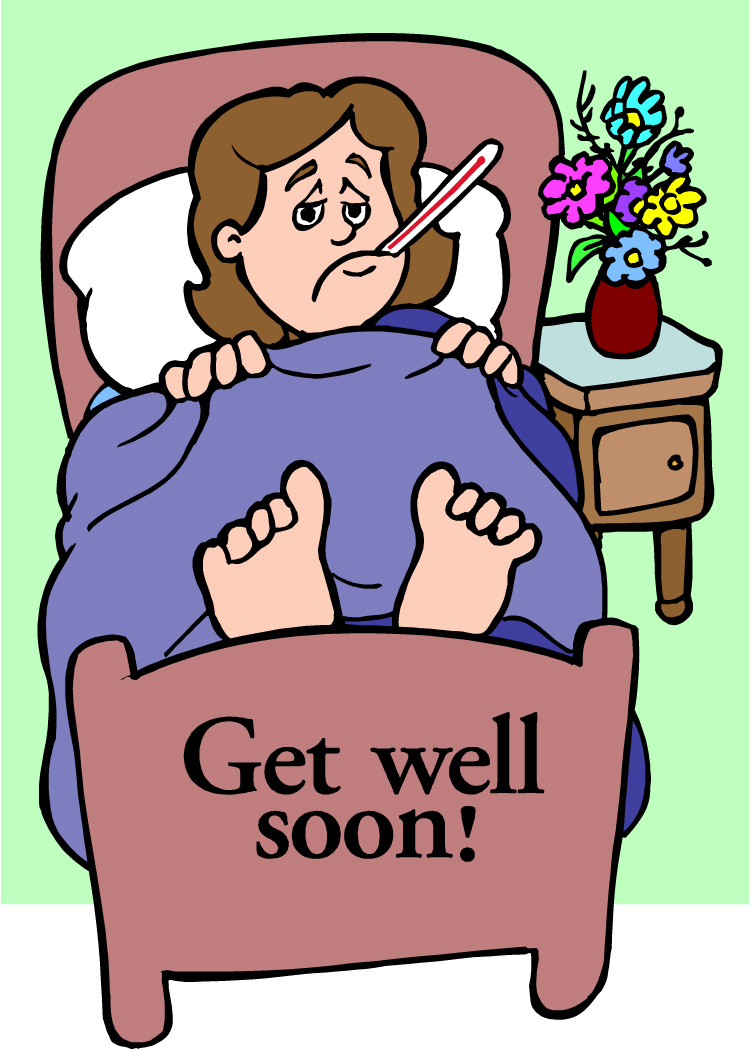What if any is the connection between the sins we commit and the sicknesses and diseases that come upon us? Much, as the Bible teaches.
First, let’s establish some basic truths.
Everyone will eventually die, so not all sickness is a result of sin (Heb 9:27).
Some sickness isn’t due to sin, but so that YHVH might be glorified when the person is miraculously healed (John 9:2–3).
The purpose of some sickness is for spiritual refinement to bring us to a higher level spiritually as was the case with Job.
In a general sense, pain, suffering and death came upon all men because of Adam and Eve’s initial rebellion against YHVH Elohim in the Garden of Eden. As a result of the “fall of man,” all men have come under this curse and suffer as a result.
Unto the woman [Elohim] said, I will greatly multiply thy sorrow and thy conception; in sorrow thou shalt bring forth children; and thy desire shall be to thy husband, and he shall rule over thee. And unto Adam he said, Because thou hast hearkened unto the voice of thy wife, and hast eaten of the tree, of which I commanded thee, saying, Thou shalt not eat of it: cursed is the ground for thy sake; in sorrow shalt thou eat of it all the days of thy life; thorns also and thistles shall it bring forth to thee; and thou shalt eat the herb of the field; in the sweat of thy face shalt thou eat bread, till thou return unto the ground; for out of it wast thou taken: for dust thou art, and unto dust shalt thou return. (Gen 3:16–19)
Some sickness is a direct result of disobeying YHVH’s commandments; it’s YHVH’s judgment against that sin. In Exodus 15:26, YHVH speaks about not putting the diseases of Egypt upon his people if they will follow his commandments.
And said, If thou wilt diligently hearken to the voice of YHVH thy Elohim, and wilt do that which is right in his sight, and wilt give ear to his commandments, and keep all his statutes, I will put none of these diseases upon thee, which I have brought upon the Egyptians: for I am YHVH that healeth thee.
The Torah further makes the connection between sin and sickness when it lists the curses for Torah disobedience in Deuteronomy 28:21–22.
YHVH will make the plague cling to you until He has consumed you from the land which you are going to possess. YHVH will strike you with consumption, with fever, with inflammation, with severe burning fever, with the sword, with scorching, and with mildew; they shall pursue you until you perish.
In Deuteronomy 7:15, YHVH again mentions not afflicting his people with the sicknesses of Egypt if they will obey his Torah-commandments.
And YHVH will take away from thee all sickness, and will put none of the evil diseases of Egypt, which thou knowest, upon thee; but will lay them upon all them that hate thee.
The Bible indicates a direct relationship between sin and healing in Psalm 103:3,
Who forgiveth all thine iniquities; who healeth all thy diseases…
“Leprosy” or the infectious skin disease the Torah refers to as tsaraat (Lev 14:34) was a judgment from YHVH against several specific sins.
When ye be come into the land of Canaan, which I give to you for a possession, and I put the plague of leprosy in a house of the land of your possession…
In several instances in the Scriptures, we read that tsaraat was a direct result of a specific sin. In the case of Miriam, it was the sin of pride and rebellion against spiritual authority and using her tongue in an evil manner against YHVH’s spiritual authority (Num 12:1, 9–10). In the case of Gehazi, he became leprous because of greed and lying (2 Kgs 5:20–27). Uzziah, the king of Judah, became leprous because of his pride and rebellion against YHVH when he dared to violate the Torah by burning incense in the temple (2 Chron 26:16–23).
Envy can bring on bone diseases. Envy can also refer to “jealousy and sexual passion.”
A sound heart is the life of the flesh: but envy the rottenness of the bones. (Prov 14:30)
Sexually transmitted diseases are a direct result of sexual promiscuity and idolatry, and is a judgment from Elohim against those who engage in such ungodly practices.
For this cause Elohim gave them up unto vile affections: for even their women did change the natural use into that which is against nature: and likewise also the men, leaving the natural use of the woman, burned in their lust one toward another; men with men working that which is unseemly, and receiving in themselves that recompense of their error which was meet. (Rom 1:26–27)
Yeshua, on several occasions, equates sin and healing. That is to say, he viewed forgiveness of sin and healing of disease as synonymous concepts. To him, the sickness was a result of sin.
Whether is easier, to say, Thy sins be forgiven thee; or to say, Rise up and walk? (John 5:24)
Yeshua shows that illness can be a direct punishment for sin, as well, when he states that a man whom he had just healed was sick because of his sin.
Afterward Yeshua findeth him in the temple, and said unto him, Behold, thou art made whole: sin no more, lest a worse thing come unto thee. (John 5:14)
YHVH’s laws of judgment against sin are still in operation even in the so-called “New Testament era of grace.” YHVH struck down and killed Annaias and Sapphira because they lied to the apostles and the Spirit of Elohim (Acts 5:1–11).
Paul confirms the truth that there is still a correlation between sin and sickness when he states that some within the body of Yeshua get sick and die because of sin. Illness is a direct punishment for sin. Paul teaches that this can occur when a believer doesn’t have the proper fear and respect for YHVH Elohim and those things which are set-apart of kadosh such as blood and body of Yeshua as symbolized in the Passover communion service by the bread and the wine.
For I have received of the Master that which also I delivered unto you, that the Master Yeshua the same night in which he was betrayed took bread: and when he had given thanks, he brake it, and said, Take, eat: this is my body, which is broken for you: this do in remembrance of me. After the same manner also he took the cup, when he had supped, saying, This cup is the new testament in my blood: this do ye, as oft as ye drink it, in remembrance of me. For as often as ye eat this bread, and drink this cup, ye do shew the Master’s death till he come. Wherefore whosoever shall eat this bread, and drink this cup of the Master, unworthily, shall be guilty of the body and blood of the Master. But let a man examine himself, and so let him eat of that bread, and drink of that cup. For he that eateth and drinketh unworthily, eateth and drinketh damnation to himself, not discerning the Master’s body. For this cause many are weak and sickly among you, and many sleep. For if we would judge ourselves, we should not be judged. But when we are judged, we are chastened of the Master, that we should not be condemned with the world. (1 Cor 11:23–32)
When trials of our faith fall on us including sickness and disease, Scripture instructs us to receive it with joy realizing that this is occurring for our spiritual refinement. We are to then ask YHVH for wisdom presumably to help us to understand why the trial is occurring, so that we can repent of sin and learn from our mistakes.
My brethren, count it all joy when ye fall into divers temptations; knowing this, that the trying of your faith worketh patience. But let patience have her perfect work, that ye may be perfect and entire, wanting nothing. If any of you lack wisdom, let him ask of Elohim, that giveth to all men liberally, and upbraideth not; and it shall be given him. (Jas 1:2–5)
Let us not forget that whom our Father in heaven loves he chastens. Sickness often is a form of loving chastisement or discipline from YHVH Elohim,
And ye have forgotten the exhortation which speaketh unto you as unto children, My son, despise not thou the chastening of YHVH, nor faint when thou art rebuked of him: for whom the YHVH loveth he chasteneth, and scourgeth every son whom he receiveth. If ye endure chastening, Elohim dealeth with you as with sons; for what son is he whom the father chasteneth not? But if ye be without chastisement, whereof all are partakers, then are ye bastards, and not sons. Furthermore we have had fathers of our flesh which corrected us, and we gave them reverence: shall we not much rather be in subjection unto the Father of spirits, and live? For they verily for a few days chastened us after their own pleasure; but he for our profit, that we might be partakers of his holiness. Now no chastening for the present seemeth to be joyous, but grievous: nevertheless afterward it yieldeth the peaceable fruit of righteousness unto them which are exercised thereby. Wherefore lift up the hands which hang down, and the feeble knees; and make straight paths for your feet, lest that which is lame be turned out of the way; but let it rather be healed. (Heb 12:5–13)







